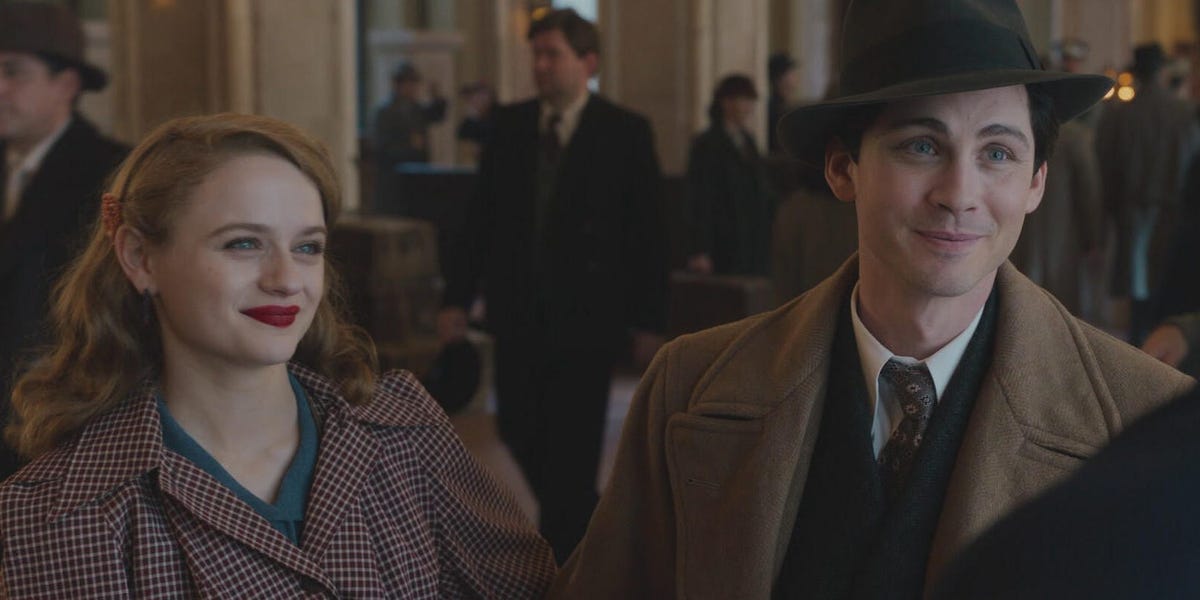When Georgia Hunter began researching her family history and writing “We Were the Lucky Ones” in 2008, she didn’t expect it to become a bestselling novel, and even less a Hulu series that she’d coproduce.
“I never went into this with a marketing mind,” she told Business Insider. “I kept it so close for so long.”
But the novel, which was published in 2017, sold over one million copies. And a few years later, Hunter began working with Hulu to make a show out of it. The series, premiering on March 28, follows the author’s family of Jewish descent — her grandfather, played by Logan Lerman, and his siblings — as they flee Poland and scatter across the globe when World War II breaks out.
Business Insider spoke with Hunter; Erica Lipez, EP, writer, and showrunner for the series; Carolyn Cassidy, EVP and head of development at the Disney-owned production studio 20th Television; and Jordan Helman, head of scripted programming at Hulu Originals, to understand what goes into adapting a book into a TV series, and how “We Were the Lucky Ones” was made.
The novel is one of several books that Hulu is adapting for the small screen — two upcoming series, “Under The Bridge” and “Interior Chinatown,” are also adaptations.
“What’s really important is that we’re not repeating ourselves,” Helman said. “At face value, these feel radically different, but what ties them all together is a real sense of authorship and quality, and a deep sense of entertainment at their core.”
Hulu
There’s not a fixed formula for the content that gets adapted — it’s ultimately ‘best show wins’
Cassidy said intellectual property that can be developed into a show comes to a production company from a variety of different avenues.
“Sometimes it is just a producer that brings in a story, sometimes it’s an IP scout that will give us heads-up on books. It’s from our executives’ own personal taste. It’s from listening to podcasts and looking at articles,” she said. “We use intellectual property as the foundation for our series often, and we have a lot of tools in our arsenal to find those stories.”
When it comes to book adaptations, social media can also be a research tool, though it’s mostly used for marketing and as a way for users to “amplify their love for a given title,” Helman said.
Crucially, streaming services and TV networks are always interested in reaching their target audiences. For example, ABC viewers love procedural drama, while Hulu does well with female audiences and thrillers, Cassidy said.
But there’s not a one-size-fits-all approach when it comes to choosing adaptations. For books specifically, it can help when a novel or series has had great success in stores, but it’s not the only consideration.
“Sometimes you do look at something that has a huge following, like Percy Jackson, for instance,” Cassidy said. “We were not going to make that if the television script wasn’t phenomenal, but it didn’t hurt that there’s such a fan following.”
Ultimately, Helman said, the decision boils down to “best show wins.”
“We have to believe in the creative. We aren’t driven solely by a title or metrics,” Cassidy added. “The actual teleplay has to be something that wins, and we stand by.”
Courtesy of Georgia Hunter; Ellyn Jameson; courtesy of Carolyn Cassidy; courtesy of Jordan Helman
Why ‘We Were the Lucky Ones’ was a fit
In the case of “We Were the Lucky Ones,” the idea for the show came from director and executive producer Thomas Kail, who has an overall deal at 20th Television, where he develops show ideas. He’s a decades-long friend of both Hunter and Lipez, the showrunner, who he brought the book to in 2019.
“I could not put it down,” Lipez said. “It was the most incredible story I had ever read. And the fact that it was a true story was hard to believe. I knew it would be a huge undertaking because it’s a big epic show, big ensemble, but it felt like we had to try.”
The novel covered all the bases of the type of story that is appropriate for a TV show adaptation.
“There’s a lot of different factors,” Cassidy said. “Does it have stakes and propulsion? Is it a gripping story? Are there characters to root for? Is it a unique premise?”
The audience success of the novel certainly helped in making the decision to adapt the book, too, Helman said. But it wasn’t the catalyst.
“What I actually find really interesting is a lot of people have said this is an important story, and it is, but for me, it wasn’t a history lesson,” Cassidy said. “The book and the true story of these characters were mothers and fathers who wanted to protect their children. It was young women who wanted to start families and careers, people experiencing all the firsts of life, love, and heartbreak, but against this extraordinary backdrop. I don’t think we could ask for more when we look at a story.”




